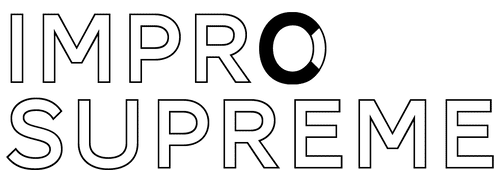You don’t understand something until you understand it. You don’t understand someone until you understand them. You don’t understand anything until you understand everything. – No, that last one was an exaggeration. But it’s almost true. I wrote it to see if maybe Maybe it could be true To see if I could understand
Think Before You Play. Make It Good
The Impro Supreme blog by Caspar Schjelbred
What the audience sees and hears is just the surface of what is happening in an improv scene. Underneath bubbles the secret life of the improvisers. Here’s my dictionary of improv emotions to help you identify what’s going on!
Listen for the heart of things. That’s what to do if you’re lost, if you don’t know what to do, if you’ve forgotten why you ever did anything in the first place. I rediscovered it recently in Julyen Hamilton’s workshop in Paris: The Dancing Spirit in Voice, Word and Body. (Yes, that’s me in the background.)
Why read about acting and theatre if you’re not an actor or director? Why read yet another book about it, if you’re already working in the business? I’ll answer the second question first: you have to keep thinking about your art. Test your ideas. Formulate your own thoughts. Also, it’s the best way to find out whether
It has taken me a long time to understand that the path to freedom in clowning passes through creating clown acts. The shorter and simpler, the better. I wrote this piece in January 2014, towards the end of Ira Seidenstein’s fifth annual Quantum Clown Residency (QCR), a 3‑week physical acting and clown course in Brisbane, Queensland,
I never looked for a mentor. The thought of having one never occurred to me – not before I realised that I actually did have one. Here’s the story of how meeting my mentor Ira Seidenstein was essentially about meeting my creative self, the world and others – through clowning. The text is a slightly modified and
Page [tcb_pagination_current_page] of [tcb_pagination_total_pages]

